linux 中正则表达式?、+、*、及.*的区别
001、?表示匹配0次或者1次
atcg?t 能够匹配 atct 或 atcgt,但是不能匹配 atcggt。
测试:
[root@pc1 test]# ls a.txt [root@pc1 test]# cat a.txt atct 888 atcggk 333 atcgt 444 atcgggkx 3333 [root@pc1 test]# awk '$1 ~ /atcg?t/' a.txt ## g?表示匹配g0次或者匹配g1次 atct 888 atcgt 444
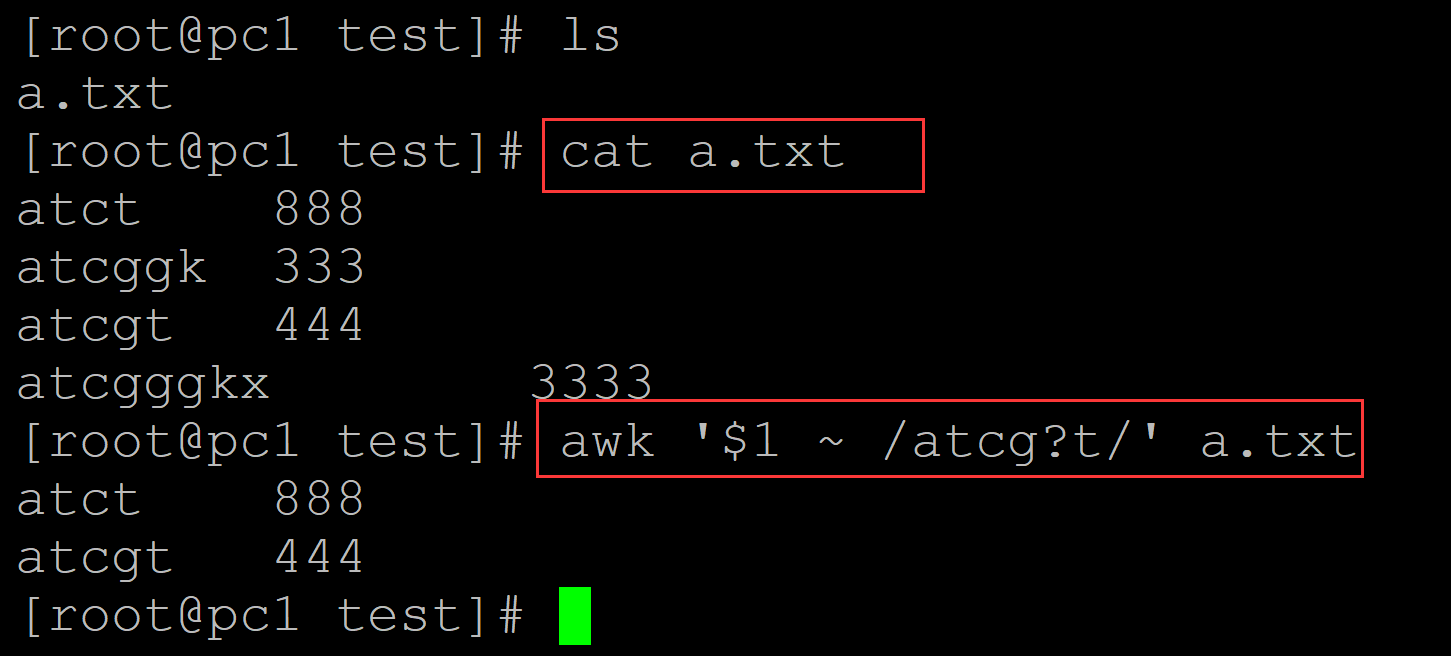
002、+ 表示匹配之前的项 1 次或多次
exon-9+能够匹配 exon-99 和 exon-9,但是不能匹配 exon-。
测试:
[root@pc1 test]# ls a.txt [root@pc1 test]# cat a.txt exon-99 888 exon-9 666 exon- 333 exon-88 777 [root@pc1 test]# awk '$1 ~ /exon-9+/' a.txt exon-99 888 exon-9 666
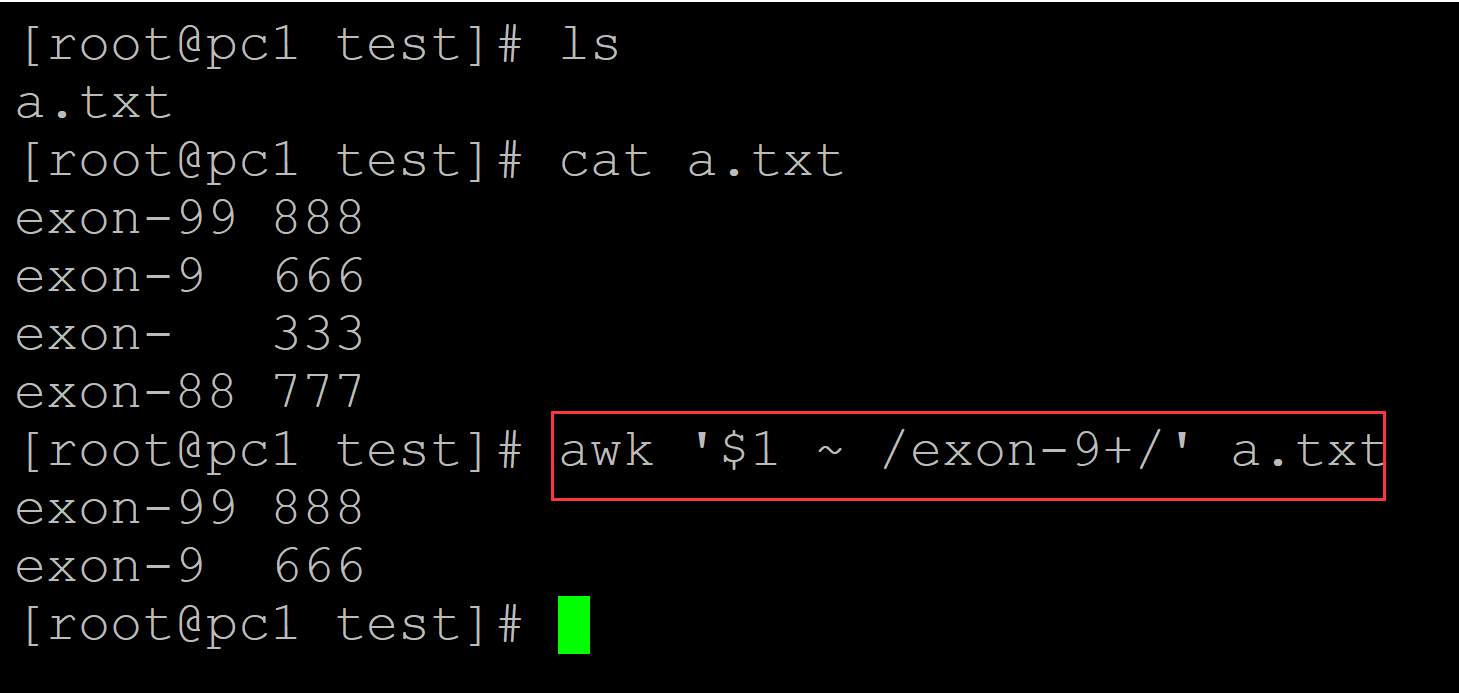
003、*表示匹配之前的项 0 次或多次
exon-9*能够匹配 exon-*,但是不能匹配 exon。
[root@pc1 test]# ls a.txt [root@pc1 test]# cat a.txt exon-99 888 exon-9 666 exon- 333 exon-88 777 exon88 777 [root@pc1 test]# awk '$1 ~ /exon-9*/' a.txt ## 9*表示匹配90次或者多次 exon-99 888 exon-9 666 exon- 333 exon-88 777
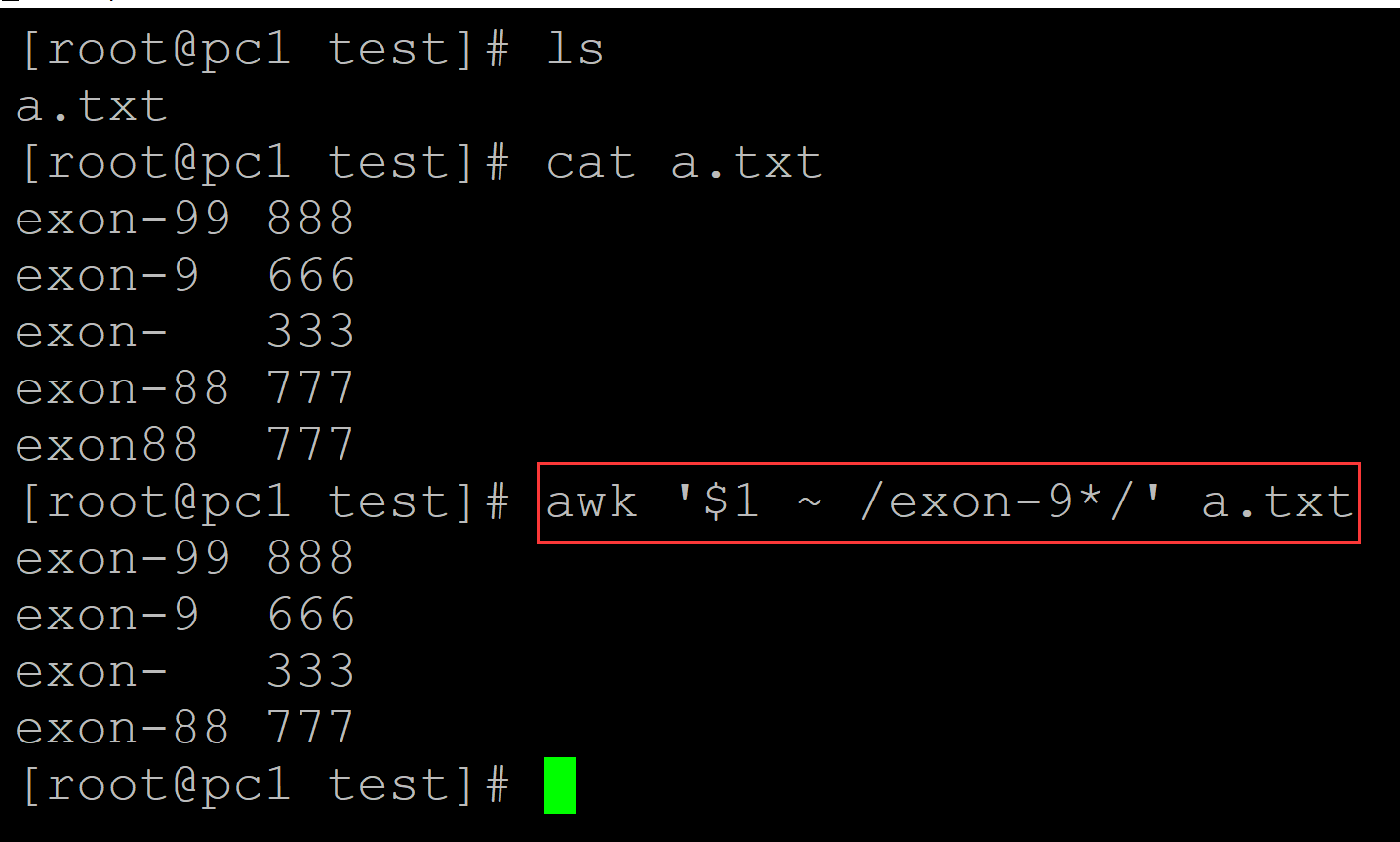
004、.* 表示匹配任意字符0次或者多次, 一般指匹配所有。
小结:
[root@pc1 test]# ls a.txt [root@pc1 test]# cat a.txt cl jjj col kkk coool mmm cooool nnn xxxx yyyy [root@pc1 test]# awk '$1 ~ /co?l/' a.txt ## ?表示匹配前一个字符0次或者多次 cl jjj col kkk [root@pc1 test]# cat a.txt cl jjj col kkk coool mmm cooool nnn xxxx yyyy [root@pc1 test]# awk '$1 ~ /co+l/' a.txt ## +表示匹配前一个字符1次或者多次 col kkk coool mmm cooool nnn
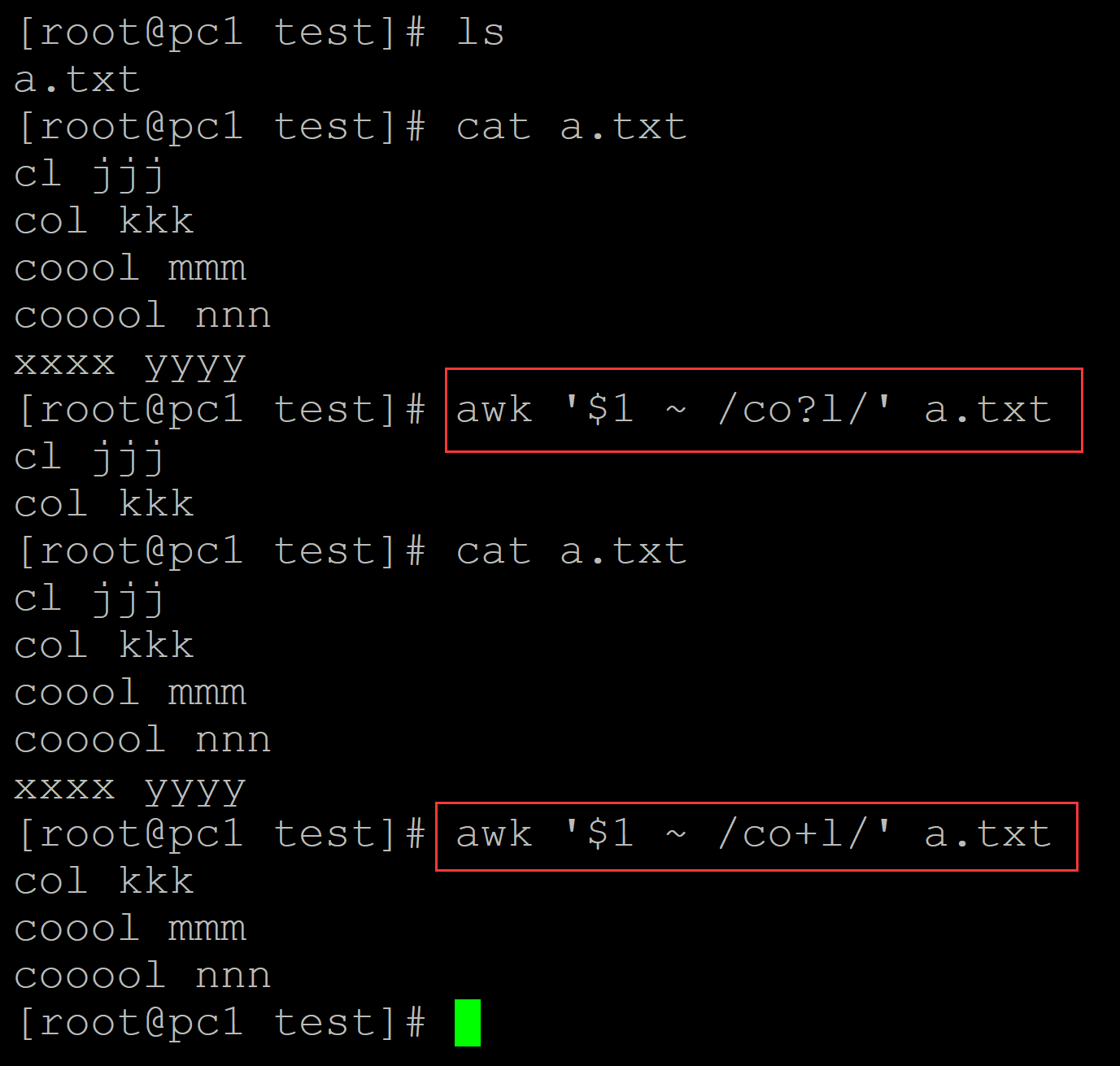
[root@pc1 test]# ls a.txt [root@pc1 test]# cat a.txt cl jjj col kkk coool mmm cooool nnn xxxx yyyy [root@pc1 test]# awk '$1 ~ /co*l/' a.txt ## *号表示匹配0次或者多次 cl jjj col kkk coool mmm cooool nnn [root@pc1 test]# cat a.txt cl jjj col kkk coool mmm cooool nnn xxxx yyyy [root@pc1 test]# awk '$1 ~ /co.*l/' a.txt ## .*表示匹配任意字符0次或者多次 col kkk coool mmm cooool nnn
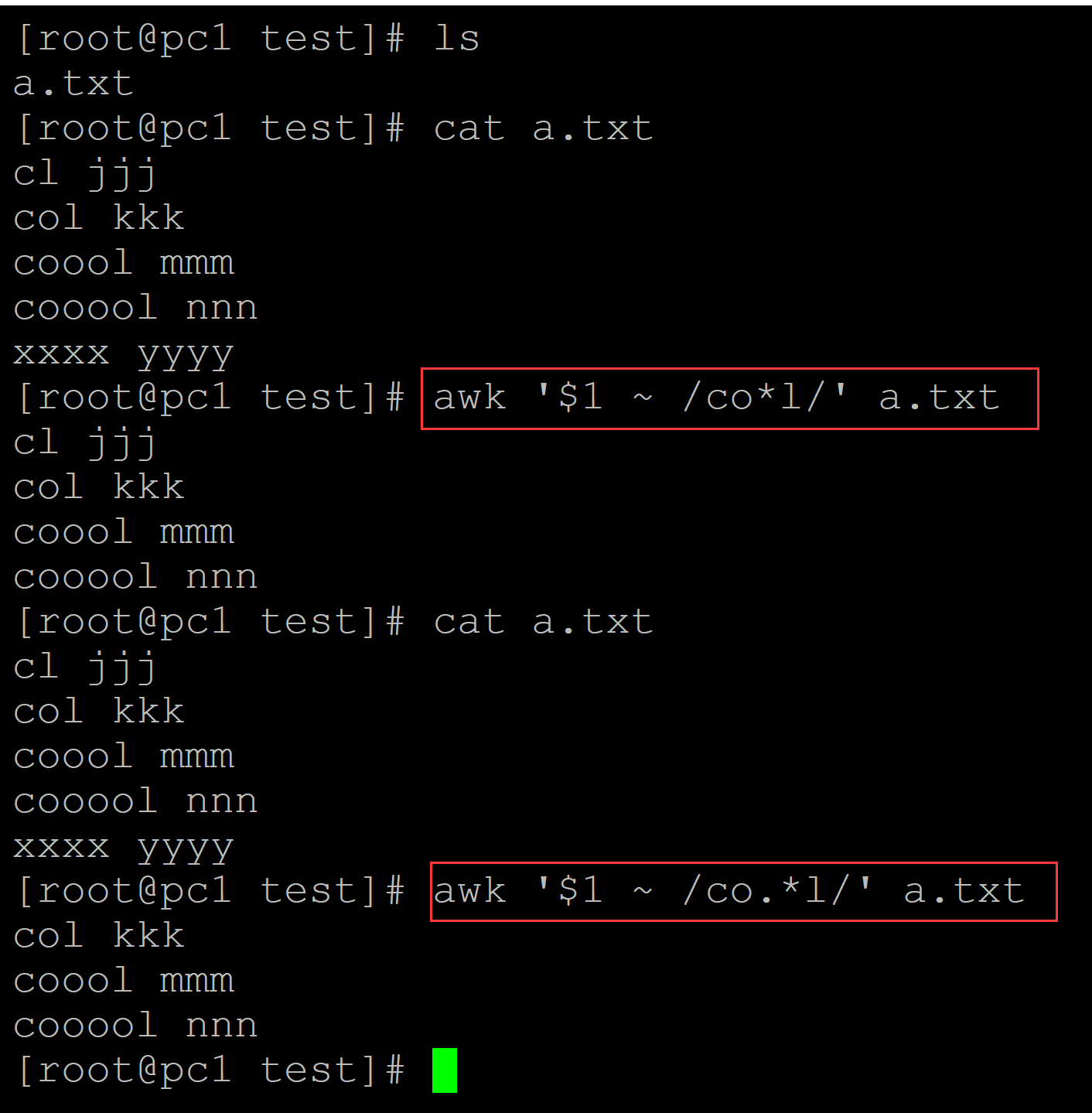
参考:https://mp.weixin.qq.com/s?__biz=MzU1NTk0MTUxMg==&mid=2247490679&idx=2&sn=9c2c050c02bb106839fab7ec72a2a0ae&chksm=fbcdf790ccba7e8659943e72198aa5a86ecac362841e19de519fe0bdefdf83708bb743203d46&mpshare=1&scene=23&srcid=01050wuMhaTBRKnW8dsga2B8&sharer_sharetime=1672894580394&sharer_shareid=50b75c6a886e09824b582fb782a7678b#rd
分类:
linux shell






【推荐】国内首个AI IDE,深度理解中文开发场景,立即下载体验Trae
【推荐】编程新体验,更懂你的AI,立即体验豆包MarsCode编程助手
【推荐】抖音旗下AI助手豆包,你的智能百科全书,全免费不限次数
【推荐】轻量又高性能的 SSH 工具 IShell:AI 加持,快人一步
· 震惊!C++程序真的从main开始吗?99%的程序员都答错了
· 【硬核科普】Trae如何「偷看」你的代码?零基础破解AI编程运行原理
· 单元测试从入门到精通
· 上周热点回顾(3.3-3.9)
· winform 绘制太阳,地球,月球 运作规律
2022-01-05 linux中grep命令匹配制表符
2022-01-05 linux中如何删除空行
2022-01-05 linux中如何删除行首和行尾的空格或者制表符
2022-01-05 linux中如何删除^M符号
2022-01-05 linux中tr命令
2021-01-05 c语言中逆向显示数值
2021-01-05 c语言中后置递增运算和前置递增运算的差异